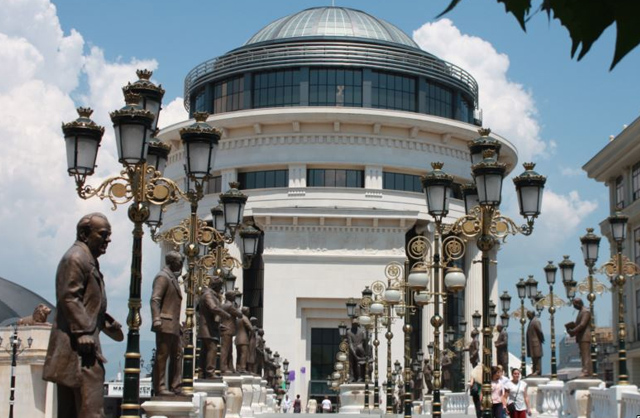In accordance with which law does the Public Prosecutor’s Office act?
February 4, 2015

The Basic Public Prosecutor’s Office for persecuting organized crime and corruption, on 03 February 2015 reacted with a press release to the events related to the issuing and distribution of recordings of the meetings between the Prime Minister Nikola Gruevski and the leader of the SDSM, Zoran Zaev. In the press release, the BPPO elaborated only on the way in which the recordings were acquired, and explicitly emphasized that those who were going to publish the materials, in this case the media, would become liable to repercussions.
The Helsinki Committee, in reference to the BPPO’s press release, deems that it is necessary to underline that, pursuant to Article 18 of the Code of Criminal Procedure, the Public Prosecutor’s Office is obliged to initiate criminal proceedings provided there is evidence that an offense has been committed which can be persecuted ex officio, as prescribed in the Article. It is almost absurd that the BPPO, having in mind the information presently available, fails to state whether it has an intent, and whether it takes any steps with regard to the material which allegedly discloses serious crime and corruption, perpetrated by high state officials. It is of essence in a case like this to determine the existence or non-existence of such materials, and not to shift the issue only on following the procedure and the way in which the recordings were made and their further distribution made possible. The Helsinki Committee also reminds of the constitutional warranty for protection of the freedom of public information, free access to information, and freedom of receiving and transferring information.
When it comes to the statements in the BPPO’s press release which pertain exactly to these freedoms, they are rather symptomatic and may be interpreted as a way to prevent further disclosure of criminal offenses whose clarification is of special interest, while this same disclosure is every citizens’ duty. It is also in accordance with Article 273 of the Code of Criminal Procedure – Reporting Crimes, where it is determined that everyone is obliged to report crimes that are being prosecuted ex-officio.
As far as the threat of sanction for exposing materials and evidence, Articles 289 and 299 of the Code of Criminal Procedure indeed prohibit revealing of undertaken actions, or documents, or statements acquired during the procedure, but do not prohibit releasing materials which may became object of procedure! Therefore we ask which is the law the Public Prosecutor’s Office appeals to, and whether it actually places itself in a position to act in someone’s defense, although that is not the PPO duty, because, at the contrary, the Prosecution is obliged to investigate all sources and rumors and must persecute on the basis of crime accusations, and not to defend anybody.


